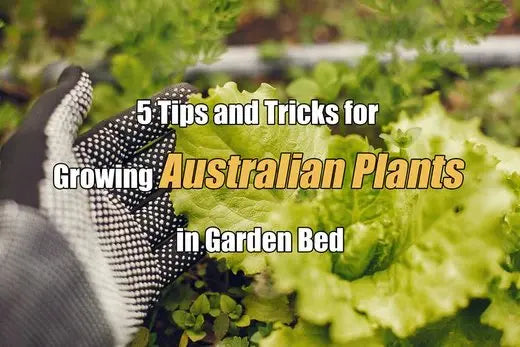The Benefits of Installing an Irrigation System in Your Garden
If you have a garden, you understand the importance of regular watering to keep your plants healthy and thriving. However, manually watering your plants can be time-consuming and inefficient. That's where an irrigation system comes in. Installing an irrigation system in your garden can bring numerous benefits, from enhancing plant growth to conserving water.
Understanding Irrigation Systems
An irrigation system is a method of delivering controlled amounts of water to your plants using a network of pipes, sprinklers, or drip emitters. These systems are designed to provide water directly to the root zone of plants, ensuring that they receive just the right amount of water they need. By providing water at the plant's roots, irrigation systems reduce water waste and promote more effective watering.
When it comes to irrigation systems, there are several types to choose from, each with its own advantages and disadvantages. One common type is the sprinkler system, which uses overhead sprinklers to distribute water over a large area. Sprinkler systems are popular because they are versatile and can cover a wide range of plantings, from lawns to flower beds. However, they can be less efficient than other systems, as some water may be lost to evaporation or wind drift.
Another type of irrigation system is the drip irrigation system. This system delivers water directly to the base of each plant through a series of tubes or hoses with small emitters. Drip irrigation is highly efficient, as it minimizes water loss due to evaporation or runoff. It is also ideal for areas with limited water supply or for plants that require precise watering, such as vegetable gardens or container plants. However, drip irrigation systems can be more expensive to install and require regular maintenance to prevent clogging of the emitters.

In addition to sprinkler and drip irrigation systems, there are also specialized systems available for specific purposes. For example, subsurface irrigation systems deliver water directly to the root zone underground, reducing evaporation and minimizing weed growth. This type of system is commonly used in sports fields or golf courses, where maintaining a lush and uniform turf is essential.
When designing an irrigation system, it is important to consider factors such as the type of plants being watered, the soil type, and the climate of the area. Different plants have different water requirements, and soil conditions can affect how water is absorbed and retained. Additionally, the climate plays a significant role in determining the frequency and duration of watering. For example, in hot and dry climates, plants may require more frequent watering compared to cooler and more humid regions.
Proper maintenance of an irrigation system is crucial to ensure its effectiveness and longevity. Regular inspection of pipes, sprinklers, and emitters is necessary to identify any leaks, clogs, or other issues that may affect the system's performance. It is also important to adjust the watering schedule according to the changing seasons and weather conditions. By monitoring and adjusting the irrigation system, you can optimize water usage and promote healthy plant growth.
The Role of Irrigation Systems in Gardening
When it comes to gardening, having a reliable irrigation system can make a world of difference. Not only do irrigation systems simplify the task of watering your plants, but they also contribute to the overall health and vitality of your garden. With a well-designed irrigation system, you can easily control the frequency and amount of water your plants receive, ensuring optimal growth and productivity.
Moreover, irrigation systems can be programmed to deliver water at specific times of the day, which is particularly beneficial during hot summer months when plants are more susceptible to dehydration. By providing water during the early morning or late evening, you can minimize water evaporation and maximize your plants' ability to absorb moisture.
Enhancing Plant Growth
One of the key benefits of installing an irrigation system is the significant improvement in plant growth. Effective watering is essential for healthy plant development, and irrigation systems provide a consistent and controlled water supply that encourages strong root growth and lush foliage. With a well-maintained irrigation system, your plants will receive water evenly, ensuring that no area of your garden is over or under-watered.
In addition to promoting root growth, irrigation systems can also enhance the overall health and appearance of your plants. By providing water directly to the roots, the leaves of your plants remain dry, reducing the risk of fungal diseases and leaf rot. This, in turn, leads to better-looking plants that are less prone to pest infestations.
Conserving Water
Water conservation is a crucial consideration for any gardener. By installing an irrigation system, you can significantly reduce water waste compared to manual watering methods such as using a hose or watering can. Irrigation systems are designed to deliver water directly to the plants' root zone, ensuring that every drop is efficiently used. Incorporating an irrigation system into your raised beds can be particularly advantageous, as it enables targeted and efficient watering.
Furthermore, modern irrigation systems offer features such as rain sensors and moisture sensors, which allow the system to adjust watering schedules based on current weather conditions and soil moisture levels. This intelligent water management helps conserve water by avoiding unnecessary watering during rainy periods or when the soil is already adequately moist.
Additionally, the use of timers and programmable controllers allows you to precisely control the amount and frequency of watering, further minimizing water waste. By conserving water, you not only save money on your water bills but also contribute to sustainable gardening practices.
How to Choose the Right Irrigation System for Your Garden
Selecting the right irrigation system for your garden is essential to ensure optimal performance and water efficiency. Consider the size of your garden, specific watering needs of your plants, and your budget when choosing an irrigation system. There are several types of garden irrigation systems available, each with its own advantages and considerations.
Types of Garden Irrigation Systems
When equipped with the correct information, fall and winter need not be termed garden-wrecking seasons. You can find ways to make the best of these colder seasons and watch your plants flourish.
- Sprinkler Systems: Sprinkler systems are the most common type of irrigation system. They use a network of pipes with sprinkler heads that spray water over a designated area. Sprinkler systems are versatile and suitable for both residential and commercial gardens.
- Drip Irrigation Systems: Drip irrigation systems deliver water directly to the base of plants using low-pressure emitters. This method is highly efficient and minimizes water loss due to evaporation or runoff. Drip irrigation systems are ideal for gardens with closely spaced plants or areas with water restrictions.
- Soaker Hoses: Soaker hoses are made of porous materials that allow water to seep out slowly and evenly along their entire length. They are placed around the plants, delivering water directly to the soil. Soaker hoses are cost-effective and best suited for gardens with rows of plants or a linear layout.
- Micro-Spray/Mister Systems: Micro-spray systems distribute water through a series of small spray heads that create a fine mist. These systems are suitable for gardens with delicate plants or areas that require gentle watering.
Installation and Maintenance
Basics of installation or hiring a professional
Installing an irrigation system requires careful planning and consideration. Although it is possible to install an irrigation system yourself, hiring a professional can ensure proper installation and avoid potential issues down the line. Professionals have the expertise to assess your garden's specific needs, design an efficient system, and install it correctly.
If you choose to install the system yourself, research local building codes and obtain any necessary permits before starting the project. Additionally, familiarize yourself with the layout of your garden, considering existing plants, trees, and potential obstacles. Take measurements and plan the placement of pipes, sprinkler heads, or emitters to ensure effective coverage and water distribution.
Routine maintenance for optimal system performance
After installation, proper maintenance is crucial to keep your irrigation system operating at its best. Regularly check for leaks, clogs, or damaged pipes, and repair or replace any faulty components. Cleaning the sprinkler heads and emitters is also essential to ensure they deliver water evenly and efficiently.Proper maintenance and timely irrigation repair are of paramount importance to ensure the longevity and effectiveness of your irrigation system.
In addition, adjust the watering schedule seasonally to align with changing weather conditions and plant needs. As plants grow or change, you may need to relocate sprinkler heads or adjust the direction and flow of water to ensure optimal coverage.
Lastly, consider winterizing your irrigation system to prevent damage from freezing temperatures. This may involve draining the system, insulating exposed pipes, or covering above-ground components with protective materials.
Conclusion
To sum up, installing an irrigation system in your garden provides numerous benefits. From promoting plant growth and health to conserving water and simplifying watering tasks, an irrigation system is a valuable addition to any garden. By understanding the different types of systems available and following proper installation and maintenance practices, you can ensure that your garden thrives while maximizing water efficiency. Check more Garden Backyard Tips.
By Sophia
Author Bio: Sophia is an experienced exterior designer with over 5 years of expertise in crafting stunning outdoor spaces. Her creative vision and attention to detail have transformed numerous environments into captivating landscapes. Currently, she contributes her expertise to the innovative team at Designs by PoolAid, where her passion for design continues to shape inspiring outdoor experiences.



It’s excellent that you clarified that drip irrigation techniques reduce water loss from evaporation or runoff by providing water straight to the base of plants. On Monday, my mother intends to engage the services of a qualified irrigation installation specialist. I’ll advise her to take into consideration your advice since she wants to be sure that her water costs won’t increase following the installation service. https://www.waterfordisi.com/design-installation
You brought up a really good point: irrigation systems are set up to provide water to plants at particular times of the day to keep them from drying up. Since I became involved in gardening as a pastime, I had sprinklers built in my Plymouth garden. However, they haven’t been as effective as they once were, so I need to get them looked out right away. I’ll have this in mind the next time I’m looking to employ a Plymouth contractor to fix my sprinklers. http://www.krupskesprinklers.com/
I’m thankful you explained to us that irrigation systems are programmed to deliver water at specific times of the day to prevent dehydration for plants. I have had sprinklers installed in my garden at home in Plymouth ever since I got interested in gardening as a hobby, but they recently stopped working as efficiently as they used to, so I need to have them checked soon. I’ll keep this in mind while I look for a contractor in Plymouth to hire for sprinkler repairs soon. http://www.holmesandsonsirrigation.com
The best part of your blog for me was when you explained that water loss due to evaporation or runoff is minimized when you consider drip irrigation systems because they deliver water directly to the base of plants. My mother is planning to hire a professional who offers irrigation installation services on Monday. She wants to make sure that her water bills won’t spike after the installation service, so I will ask her to think about your tips. https://hawaiilandscapedesign.com/services.html